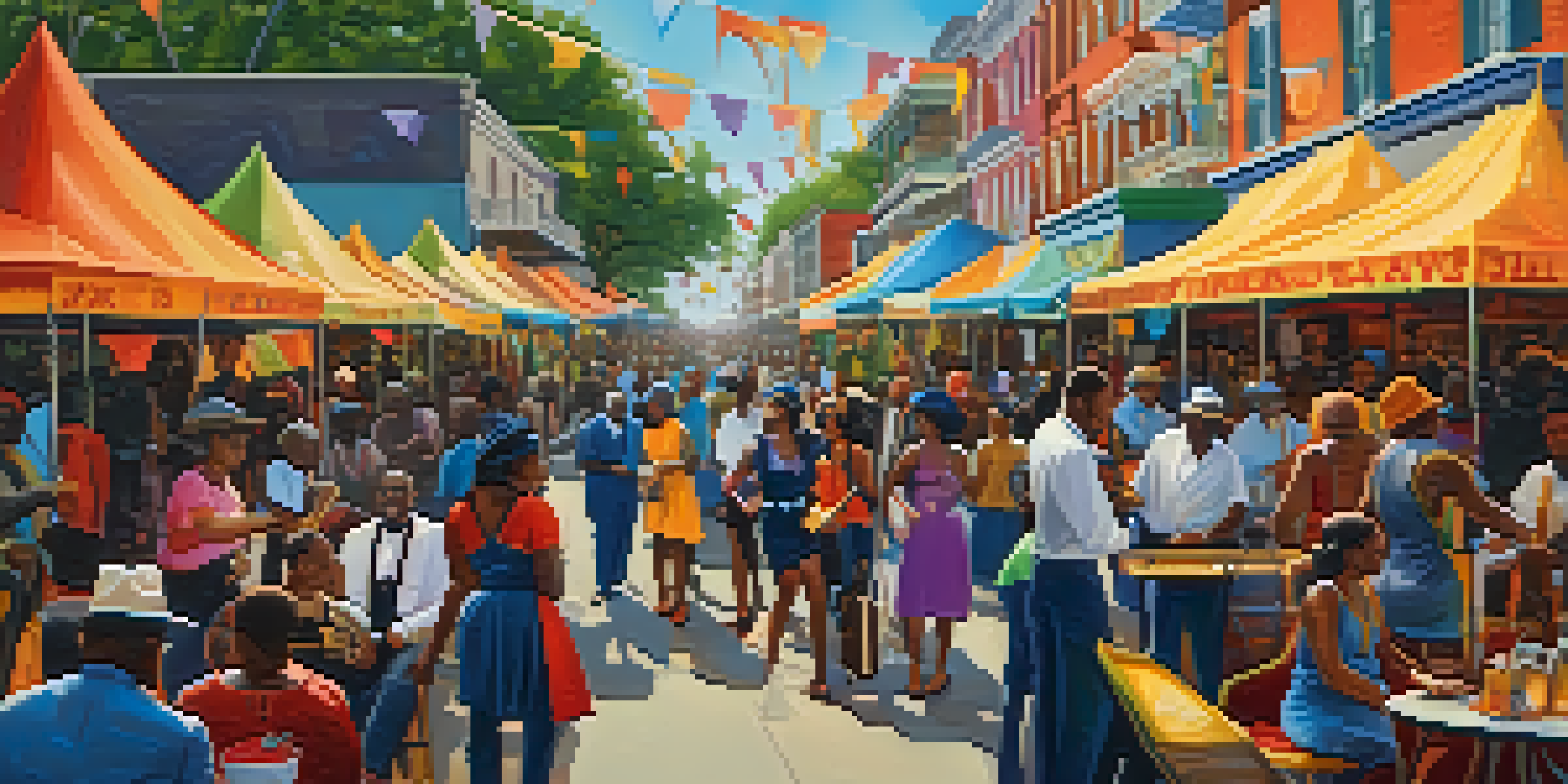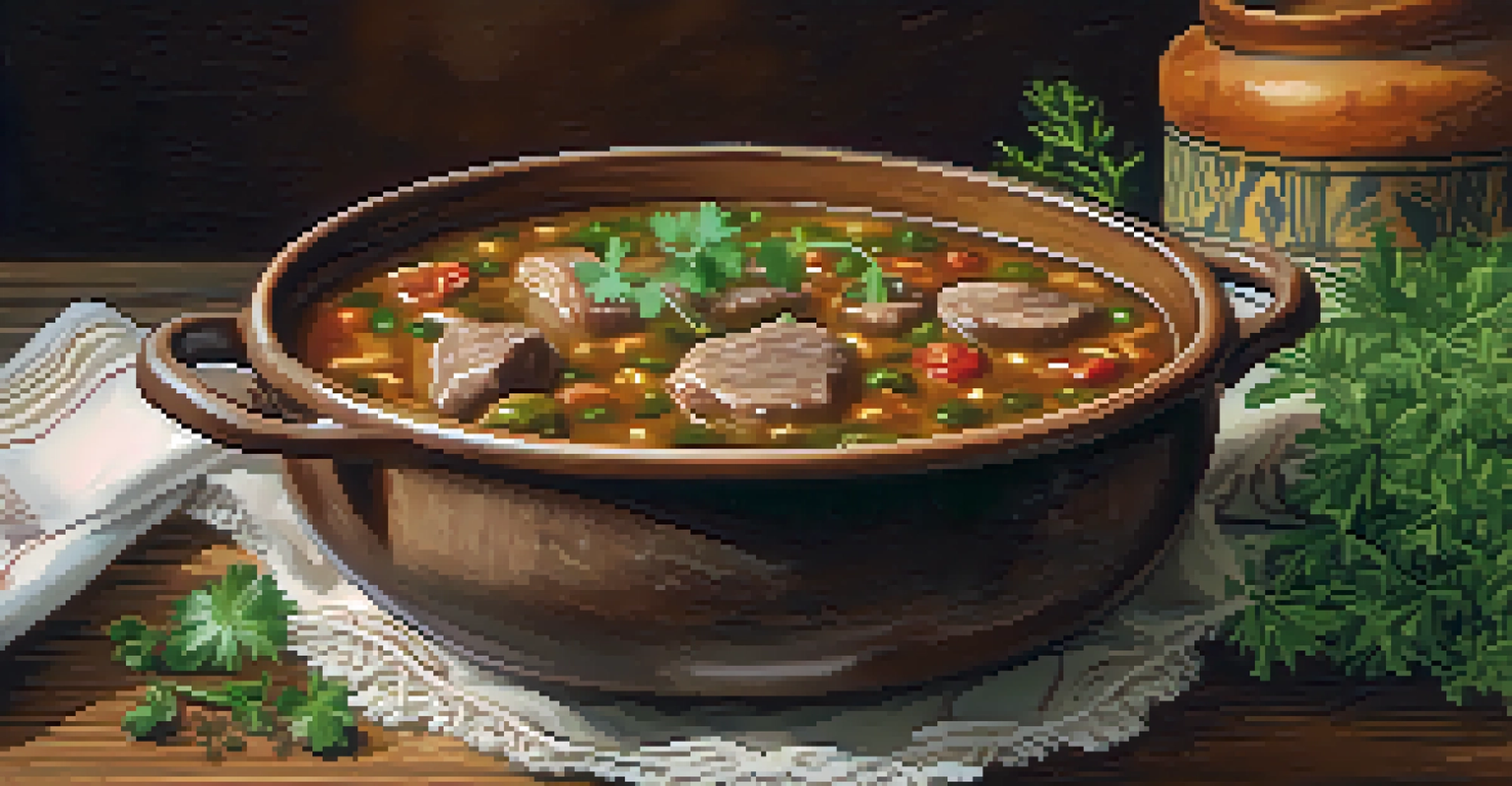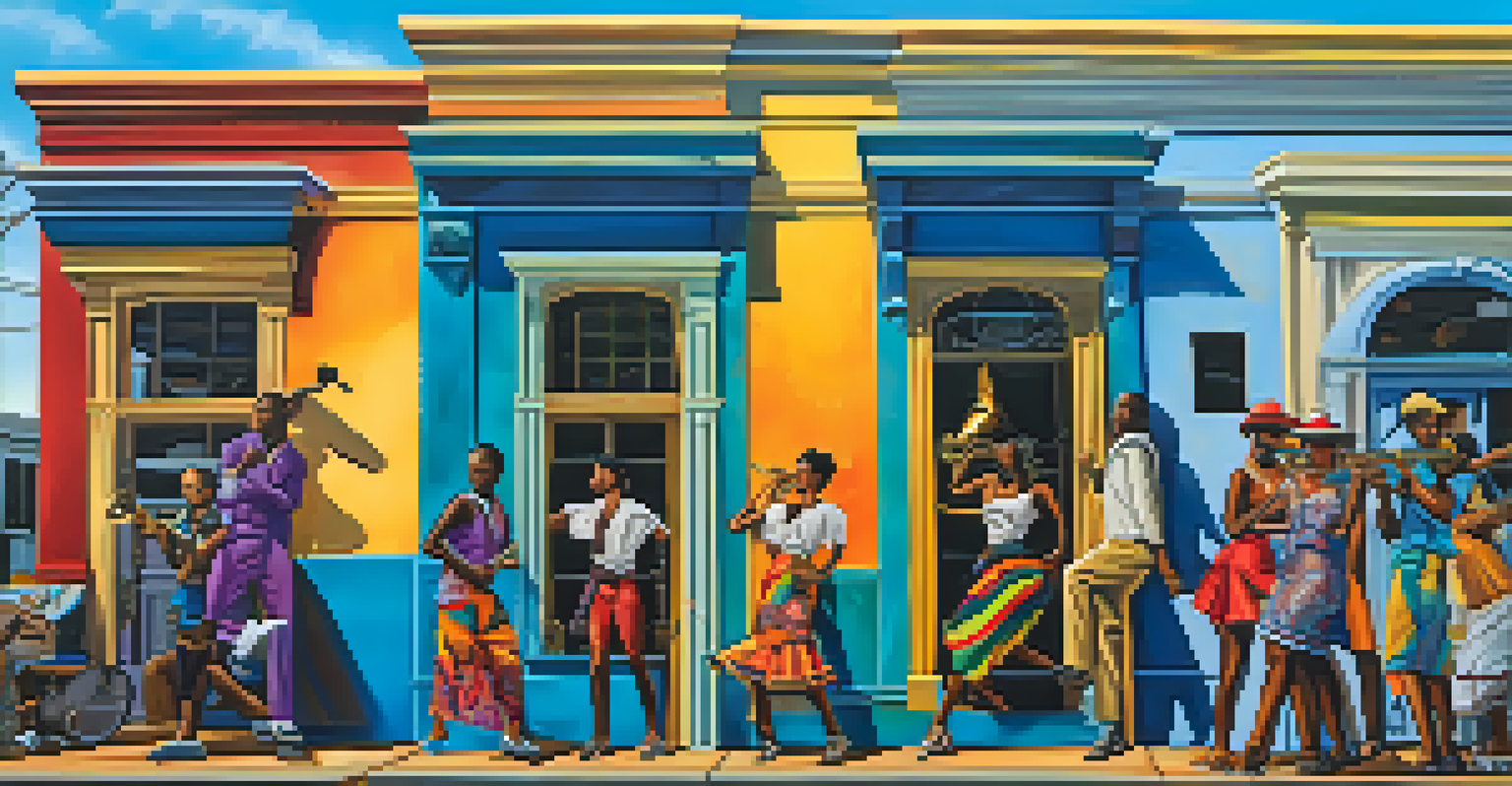The Role of African American Heritage in New Orleans

The Historical Roots of African American Culture in New Orleans
New Orleans is a melting pot of cultures, but African American heritage is especially significant. The roots trace back to the arrival of enslaved Africans, who brought their traditions, languages, and customs. Over time, these influences began to blend with the local Creole culture, creating a unique tapestry that defines the city today.
Music is the universal language of mankind.
The impact of the African American community in New Orleans can be seen through its history, particularly in the 19th century. This period was marked by resilience and creativity, as African Americans established their own neighborhoods, like Treme, which became a hub for cultural expression. These areas served as incubators for music, art, and social movements, laying the groundwork for future generations.
Understanding this historical context is crucial to appreciating the cultural richness of New Orleans. It’s a place where the echoes of the past resonate in the vibrant rhythms of jazz and the spirit of Mardi Gras. The legacy of African American heritage continues to shape the city's identity, making it a city like no other.
Music: The Heartbeat of New Orleans
When you think of New Orleans, music is likely one of the first things that comes to mind. The city is renowned for its jazz, a genre deeply rooted in African American culture. Musicians like Louis Armstrong and Wynton Marsalis have not only defined the sound of New Orleans but have also showcased the powerful narrative of African American history through their art.

Jazz emerged from the blending of African rhythms, spirituals, and popular music of the time. This rich musical tradition continues to thrive in neighborhoods like the French Quarter and the Marigny, where live music fills the streets. The annual New Orleans Jazz & Heritage Festival is a celebration of this legacy, bringing together artists and audiences to honor the roots of this unique sound.
Cultural Roots Shape New Orleans
The African American heritage in New Orleans, stemming from the arrival of enslaved Africans, has significantly influenced the city's cultural landscape.
Music in New Orleans serves as both a celebration of heritage and a means of storytelling. It reflects the struggles, joys, and resilience of the African American community, allowing listeners to connect with the past while enjoying the present. It’s not just background noise; it’s the pulse of the city.
Culinary Contributions: A Flavorful Legacy
New Orleans cuisine is another vibrant aspect of African American heritage. Dishes like gumbo, jambalaya, and beignets showcase the fusion of African, French, and Spanish influences. Many of these culinary traditions were brought to the city by enslaved Africans, who adapted their cooking techniques to available ingredients, creating a unique fusion that has become iconic.
Food is our common ground, a universal experience.
The importance of food in New Orleans goes beyond mere sustenance; it’s a way to bring people together. Family gatherings, festivals, and community events often center around shared meals, highlighting the role of food in African American culture. Restaurants and chefs, like Leah Chase, have continued this legacy, using their platforms to celebrate their heritage while influencing the broader culinary scene.
Moreover, the culinary arts serve as a means of cultural preservation. Recipes passed down through generations not only nourish the body but also keep the stories and traditions alive. In New Orleans, every bite tells a story, connecting the past with the present.
Festivals Celebrating African American Heritage
New Orleans is famous for its festivals, and many celebrate African American heritage directly. Events like the Essence Festival and the New Orleans Jazz & Heritage Festival highlight the contributions of African Americans to the city's cultural landscape. These gatherings not only showcase music and food but also provide a platform for artists, thinkers, and community leaders to share their stories.
These festivals serve as a reminder of the strength and resilience of the African American community throughout history. They are vibrant expressions of identity and culture, filled with music, dance, and art. The atmosphere is electric, inviting both locals and tourists to engage with the rich heritage of the city.
Music as a Cultural Narrative
Jazz music, deeply rooted in African American culture, serves as a vibrant expression of the community's history and experiences.
Attending these events is more than just entertainment; it’s an opportunity to learn and connect. They foster a sense of community and celebrate the diversity that makes New Orleans a unique cultural hub. In this way, the festivals become living embodiments of African American heritage.
Art and Expression: A Cultural Showcase
Art in New Orleans is a vital reflection of African American culture, with various forms expressing the community's rich history and experiences. From traditional crafts to contemporary art, the influence of African American artists is evident throughout the city. Galleries in the Treme neighborhood, for example, showcase works that tell stories of struggle, resilience, and celebration.
Street art, too, plays a significant role in this narrative. Murals and installations often highlight social issues, cultural pride, and historical perspectives. They provide a voice for the community, allowing artists to engage with critical topics while beautifying the urban landscape.
Through visual arts, the African American community in New Orleans continues to inspire and provoke thought. These expressions challenge perceptions, celebrate heritage, and contribute to the city’s dynamic cultural dialogue. They remind us that art is not just for viewing but for understanding a community’s heart and soul.
Education and Preservation of African American History
Education plays a key role in preserving African American heritage in New Orleans. Institutions like the National WWII Museum and the New Orleans African American Museum provide insights into the historical significance of the community. They serve as educational resources, ensuring that the stories and contributions of African Americans are not forgotten.
Programs and workshops aimed at teaching younger generations about their heritage are vital. They empower youth to engage with their history, fostering pride and understanding. By encouraging storytelling and cultural exploration, these initiatives help to keep the heritage alive for future generations.
Festivals Celebrate Heritage
Festivals like the Essence Festival and New Orleans Jazz & Heritage Festival showcase and celebrate the contributions of African Americans to the city's culture.
Ultimately, education is a bridge to understanding. It enables individuals to appreciate the complexities of African American heritage in New Orleans, fostering a sense of connection and responsibility. Through education, the past becomes a living part of the community, shaping its future.
The Future of African American Heritage in New Orleans
As New Orleans continues to evolve, the preservation and celebration of African American heritage remain crucial. New generations are stepping up to carry forward the legacy, infusing traditional practices with modern influences. This blend of old and new creates a dynamic cultural landscape that honors the past while embracing the future.
Community initiatives and grassroots movements are pivotal in this ongoing journey. They focus on promoting awareness and appreciation of African American culture, ensuring that it remains a vibrant part of the city's identity. Through collaboration and innovation, the community seeks to strengthen its cultural bonds.

Looking ahead, the future of African American heritage in New Orleans promises to be rich and diverse. With a strong foundation built on history, music, food, and art, the city is poised to continue celebrating its unique cultural identity. The stories of the past will undoubtedly shape the narratives of tomorrow.